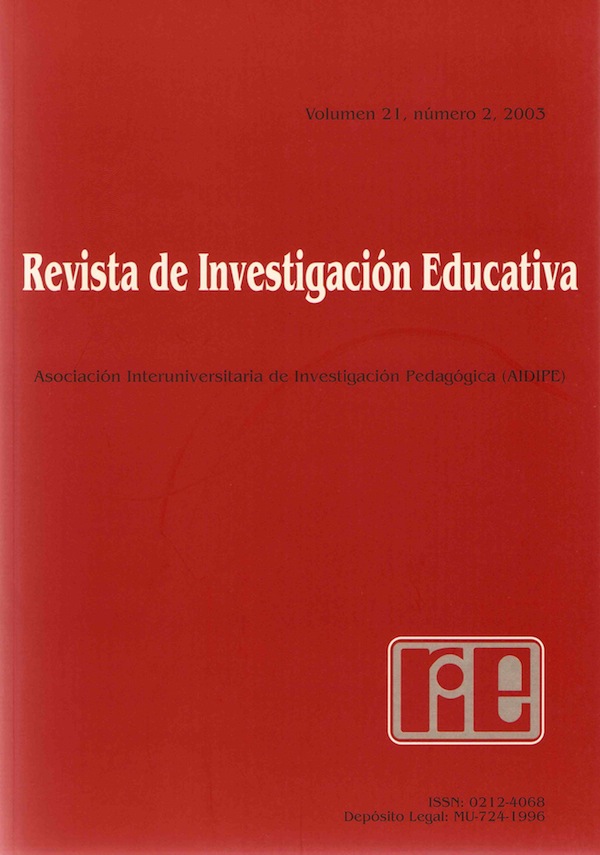Las creencias psicopedagógicas de los futuros profesores de secundaria y su relación con las demandas de examen y con la organización espacial de la clase
Abstract
The main objectives of this paper are twofold. First, it centres on identifying the beliefs and theories of future secondary school teachers about education and, second, on analysing the relationship between these theories and the way exams are designed and how classroom space is organised. The test instruments used were applied to a sample of 52 graduates, who were all following the Pedagogical Aptitude Course (CAP) during the academic year 2001-02. Results show that the more traditional teaching models (focused on the teacher) are related with a kind of exam based on rote learning and with a more vertical classroom layout. Significant differences were also found to exist between sciences and arts teachers with regard to the type of exams they set.Downloads
-
Abstract636
-
PDF (Español (España))410
The articles and scientific documents published in RIE abide the following conditions:
1. The Servicio de Publicaciones de la Universidad de Murcia (the publisher) has the property rights (copyright) of all the documents published and allows the reuse under the user’s license indicated in point 2.
2. All documents are published in the digital edition of RIE under a Creative Commons Reconocimiento-NoComercial-SinObraDerivada 4.0 Internacional. (legal document) license. These documents can be copied, used, distributed, communicated and explained publicly if: i) the author(s) and its original source of publishing (magazine, publisher and URL of the document) are cited; ii) it is not used for commercial purpose; iii) the existence and the specifications about this license are mentioned.
3. Auto-archive’s conditions. The authors are allowed and encouraged to digitally distribute the pre-print versions (a version before evaluation) and/or post-print (a version that it is already evaluated and accepted to its publication). This promotes circulation and distribution earlier and can increase the citations and significance within the academic community.










